29 August - 7 September 2025
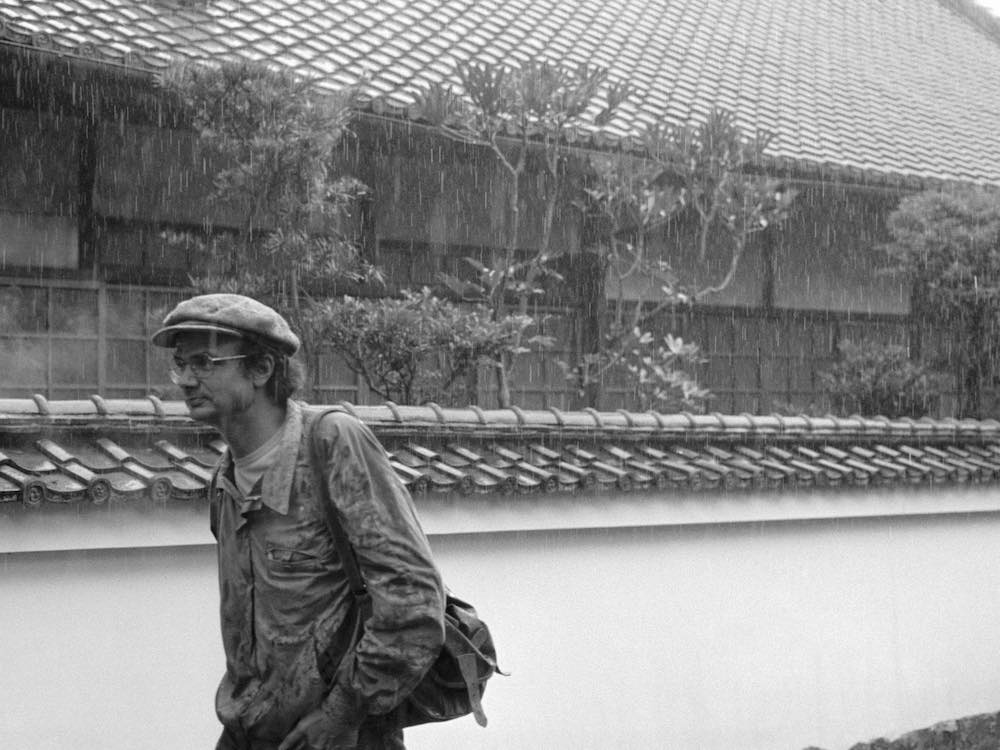
Serge Daney (1944–1992) remains one of the twentieth century’s most influential film critics. Growing up in Paris, he developed an early passion for cinema. His first article appeared in Visages du cinéma in 1962, and by 1964, he had joined the editorial team of Cahiers du cinéma, becoming editor-in-chief in 1973; here, he helped steer the magazine back towards film criticism after a more politically driven period. In 1981, he moved to Libération, broadening his scope to encompass television and other media, and a decade later, he co-founded Trafic in response to cinema’s shifting intellectual landscape.
Throughout his life, Daney was a keen traveller and found solace in the notion of voyaging ‘without luggage, totally self-sufficient in his dispossession.’ Travelling involved embracing the idea of being reduced to one’s own body, ‘of leaving no images, no trace: being clandestine in the world’; perhaps this explains his aversion to taking pictures of the places he visited, preferring to send pre-existing images as postcards to his mother in Paris.
As a country that was ‘still missing’ from his map, cinema embodied a deeply felt promise of universality for Daney. He longed for a shared imaginary space through cinema, a global citizenship of viewers, where images connect us without requiring us to be the same, allowing us to envisage ourselves somehow in relation to the world; a way of taking without owning, of belonging without opting in.
Despite his global outlook and reputation, Daney’s writings long remained unavailable in English, existing only on the periphery through ‘unofficial’ online translations or edited collections. It was not until 2022, with the publication of the first volume of The Cinema House and the World, that an English-language publisher took a chance on the critic. This was followed by a translation of La Rampe (Footlights) and Serge Daney and Queer Cinephilia, the first scholarly volume about Daney in English. Hopefully, these publications will herald the beginning of a truly international journey for his thinking and writing.
Last year, Daney would have celebrated his eightieth birthday. We seized the opportunity to reflect on the ongoing resonance of his writings and ideas through ten films.
The programme has been curated based on a combination of considerations relating to the films and Daney’s texts about them. These include the films’ impact on shaping Daney’s cinematic worldview, the recurrence and prominence of the filmmakers throughout Daney’s writings, the variety of films in their geographical origins and modes of expression, and the range of publications Daney wrote about during his career. The sheer output and quality of Daney’s writings from a young age mean our brief programme is necessarily non-exhaustive in representing his array of interests and inclinations. Hopefully, in this modest screening programme, the contours of Daney’s cinematic travelogue will come into view – one that reminds us of the promise of that missing country called cinema: an imaginary space that is nonetheless home to 'true inhabitants who [speak] the same language.'
This programme is presented in collaboration with Arta Barzanji and Gerard-Jan Claes, in conjunction with an issue they have edited for the international film journal Sabzian.
All screenings will be preceded by a guest introduction.

Serge Daney (1944–1992) remains one of the twentieth century’s most influential film critics. Growing up in Paris, he developed an early passion for cinema. His first article appeared in Visages du cinéma in 1962, and by 1964, he had joined the editorial team of Cahiers du cinéma, becoming editor-in-chief in 1973; here, he helped steer the magazine back towards film criticism after a more politically driven period. In 1981, he moved to Libération, broadening his scope to encompass television and other media, and a decade later, he co-founded Trafic in response to cinema’s shifting intellectual landscape.
Throughout his life, Daney was a keen traveller and found solace in the notion of voyaging ‘without luggage, totally self-sufficient in his dispossession.’ Travelling involved embracing the idea of being reduced to one’s own body, ‘of leaving no images, no trace: being clandestine in the world’; perhaps this explains his aversion to taking pictures of the places he visited, preferring to send pre-existing images as postcards to his mother in Paris.
As a country that was ‘still missing’ from his map, cinema embodied a deeply felt promise of universality for Daney. He longed for a shared imaginary space through cinema, a global citizenship of viewers, where images connect us without requiring us to be the same, allowing us to envisage ourselves somehow in relation to the world; a way of taking without owning, of belonging without opting in.
Despite his global outlook and reputation, Daney’s writings long remained unavailable in English, existing only on the periphery through ‘unofficial’ online translations or edited collections. It was not until 2022, with the publication of the first volume of The Cinema House and the World, that an English-language publisher took a chance on the critic. This was followed by a translation of La Rampe (Footlights) and Serge Daney and Queer Cinephilia, the first scholarly volume about Daney in English. Hopefully, these publications will herald the beginning of a truly international journey for his thinking and writing.
Last year, Daney would have celebrated his eightieth birthday. We seized the opportunity to reflect on the ongoing resonance of his writings and ideas through ten films.
The programme has been curated based on a combination of considerations relating to the films and Daney’s texts about them. These include the films’ impact on shaping Daney’s cinematic worldview, the recurrence and prominence of the filmmakers throughout Daney’s writings, the variety of films in their geographical origins and modes of expression, and the range of publications Daney wrote about during his career. The sheer output and quality of Daney’s writings from a young age mean our brief programme is necessarily non-exhaustive in representing his array of interests and inclinations. Hopefully, in this modest screening programme, the contours of Daney’s cinematic travelogue will come into view – one that reminds us of the promise of that missing country called cinema: an imaginary space that is nonetheless home to 'true inhabitants who [speak] the same language.'
This programme is presented in collaboration with Arta Barzanji and Gerard-Jan Claes, in conjunction with an issue they have edited for the international film journal Sabzian.
All screenings will be preceded by a guest introduction.
Presented in partnership with Sabzian, with the support of Southwark College.
Image: Françoise Huguier / Agence VU
Programme
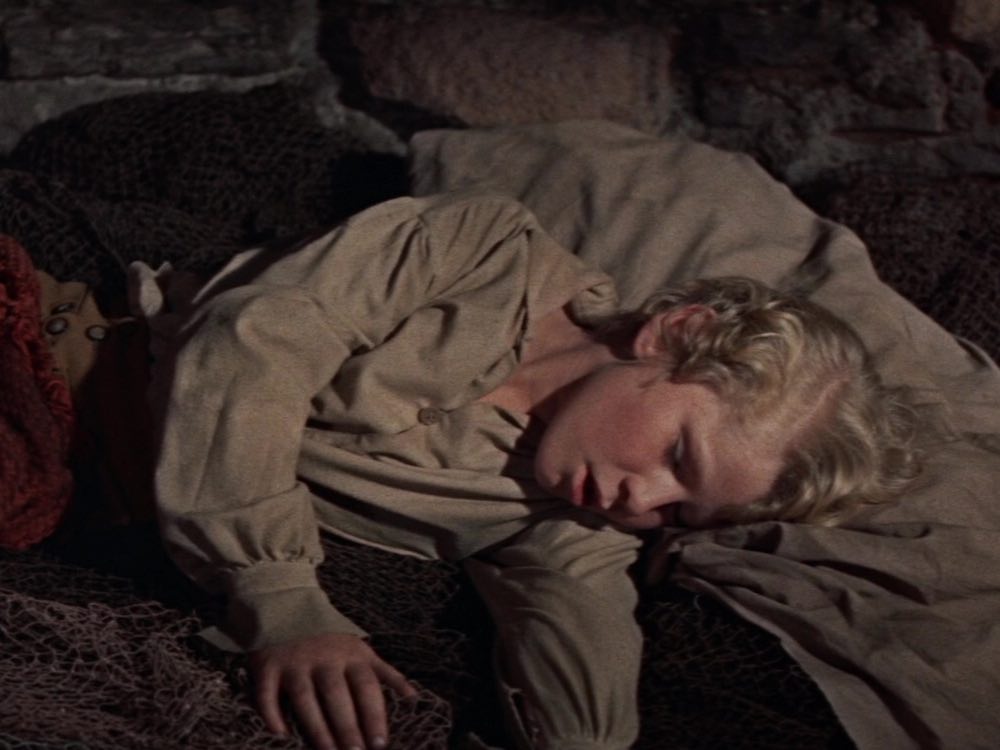
Friday 29 August, 6.30pm
Opening Night
Night and Fog + Moonfleet
Fritz Lang’s Moonfleet and Alain Resnais’s Night and Fog are two films that influenced Serge Daney’s understanding of cinema and the world early on, shaping the moral and aesthetic poles of his cinematic universe. Their influence would be felt throughout his career as a critic.
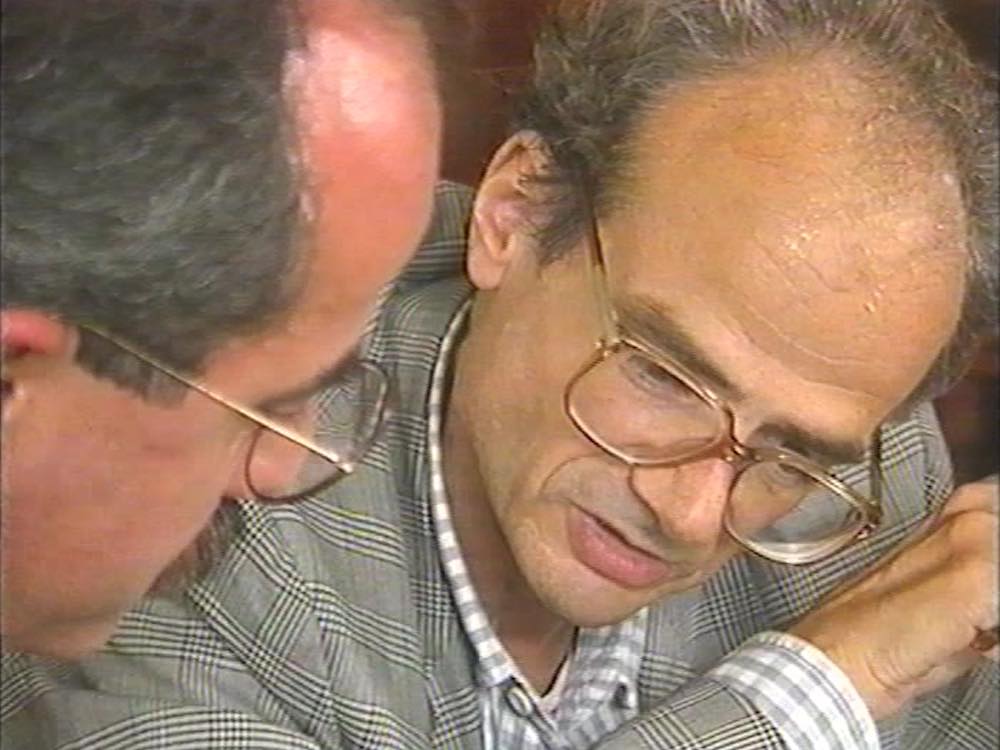
Saturday 30 August, 2pm
Nord-Sud Conversation: Daney/Sanbar + Roundtable Discussion
Serge Daney in dialogue with Palestinian historian Elias Sanbar, who is engaged in archiving the photographic memory of his people. A meeting between two cultures and two different approaches to the image, a parable of North–South relations. Followed by a roundtable discussion featuring the programme curators, Arta Barzanji and Gerard-Jan Claes, joined by Daney specialist Pierre Eugène, to discuss the enduring significance of his criticism.
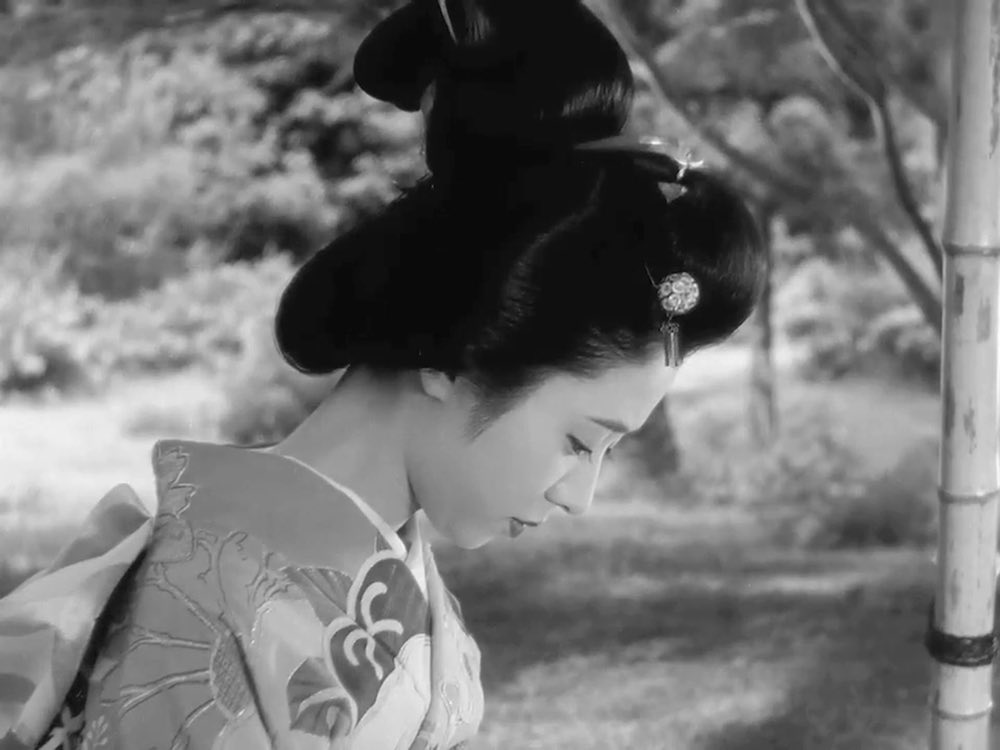
Saturday 30 August, 4.30pm
Miss Oyu
Kenji Mizoguchi’s adaptation of Junichiro Tanizaki, one of Japan’s greatest twentieth-century novelists, depicts a tragic love triangle in which ritual and repression entangle two sisters and one man in elegant torment. The film illuminates postwar familial hypocrisy with poignant, formal precision.
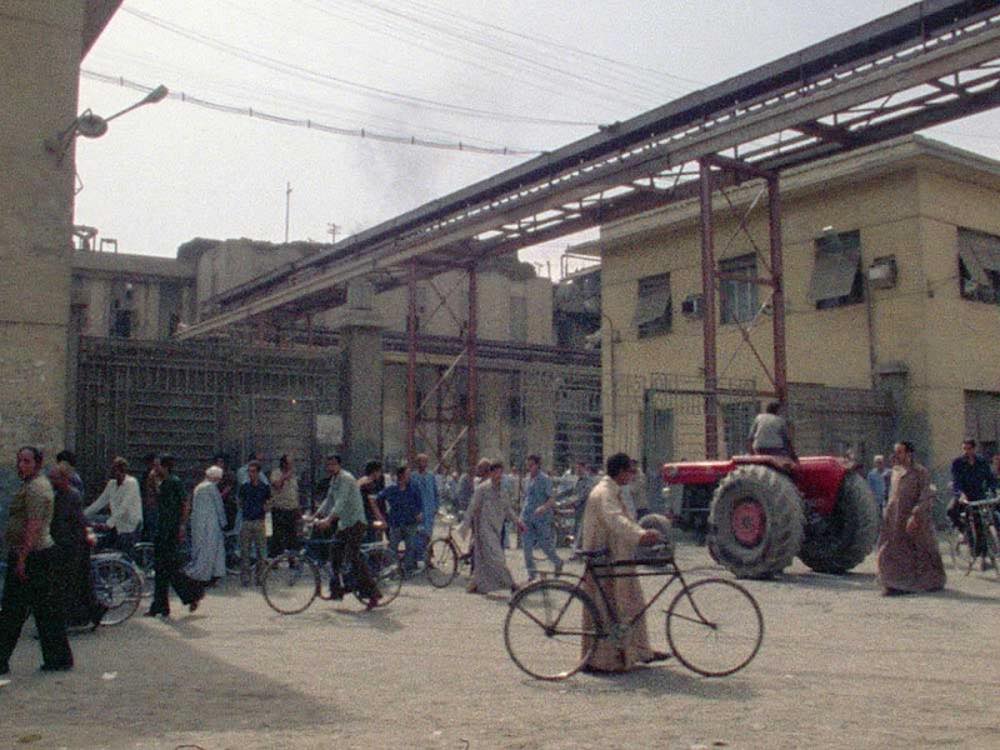
Sunday 31 August, 2pm
Too Early/Too Late
Described in various contexts as both an essay film and a landscape film, Too Early/Too Late is a diptych that juxtaposes a soundtrack reciting Friedrich Engels with images of landscapes from France and Egypt, investigating themes of history, land, and class struggle.
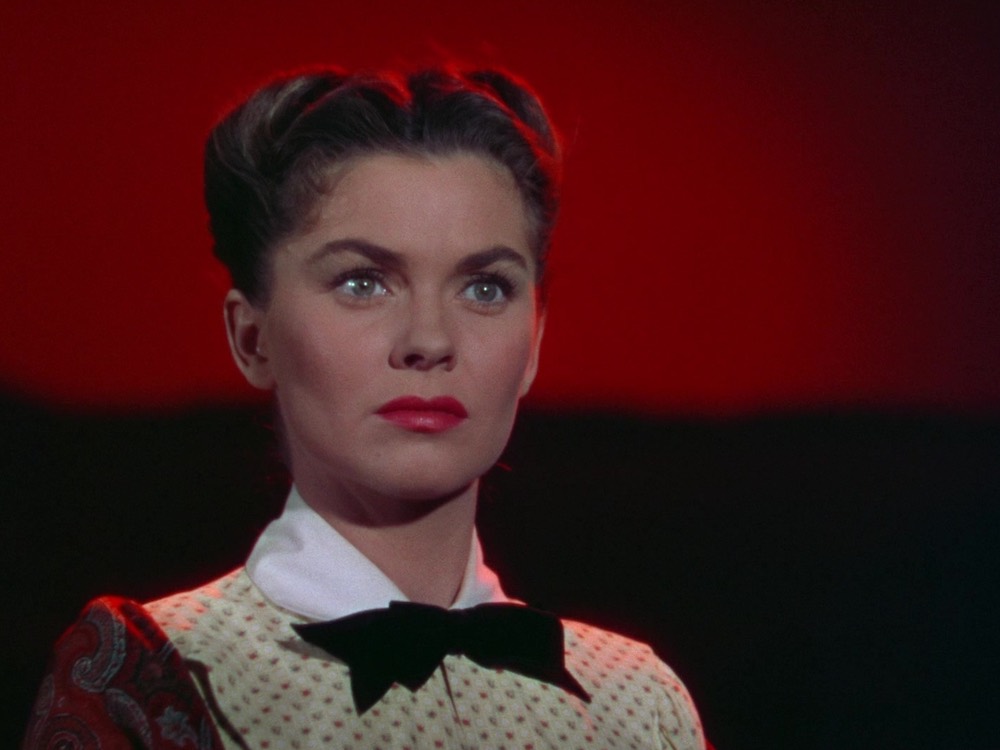
Sunday 31 August, 4.30pm
She Wore a Yellow Ribbon
One of John Ford’s most lyrical, elegiac, and narratively sparse films, She Wore a Yellow Ribbon follows a cavalry captain (John Wayne) as he grapples with the ghosts of the past during his final mission before retirement.
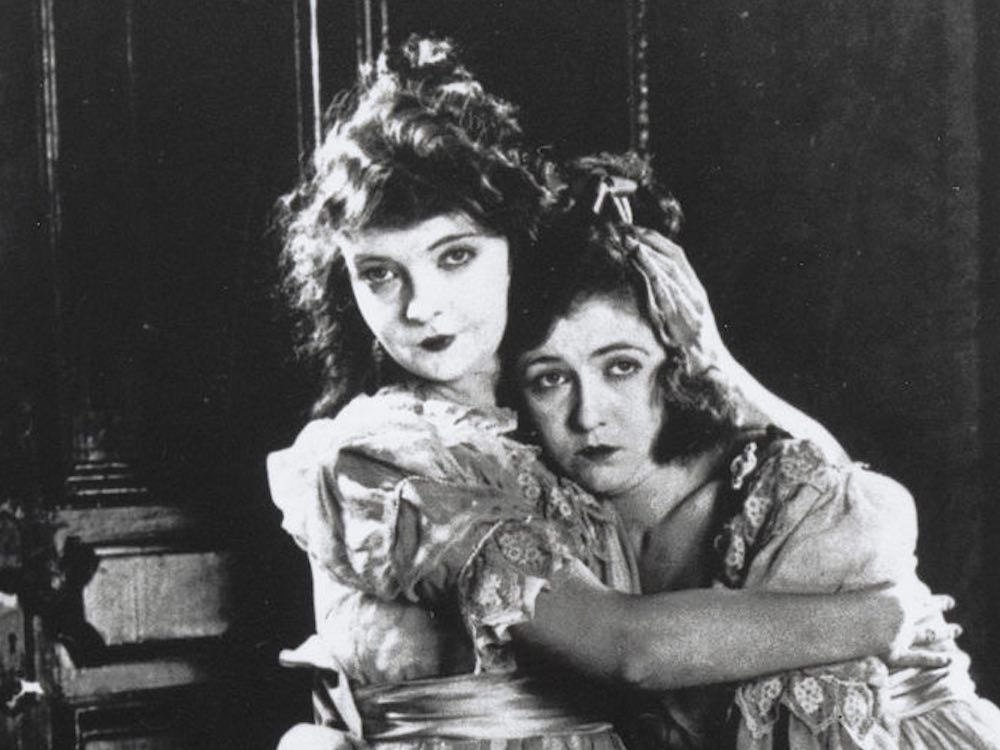
Tuesday 2 September, 6.30pm
Orphans of the Storm
D.W. Griffith’s French Revolution melodrama hurtles two orphaned sisters through crowds, reversals and brink-of-death reprieves. For Serge Daney, it’s the least frivolous Hollywood vision of 1789 and a test of cinema’s power to show rather than tell—made newly legible by the film’s late-night life on French television in the late 80s.
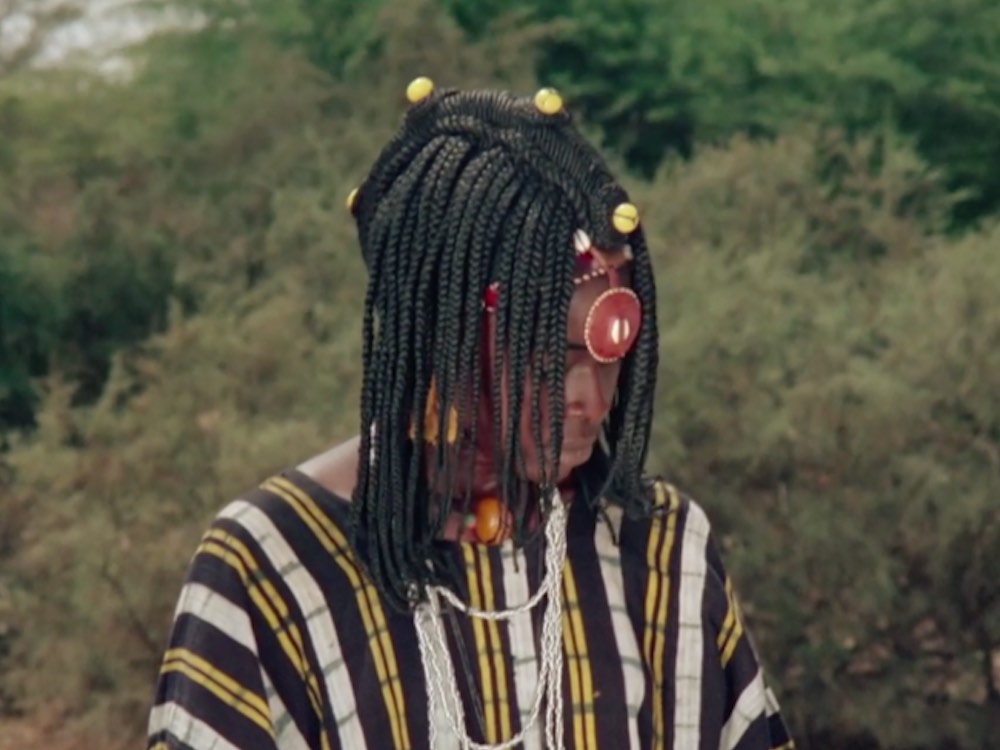
Wednesday 3 September, 9pm
Ceddo
Set in pre-colonial Senegal, the film chronicles the titular Ceddo people's struggle to uphold their culture and traditions in the face of colonial and religious incursions from outside, as well as political intrigues from within.
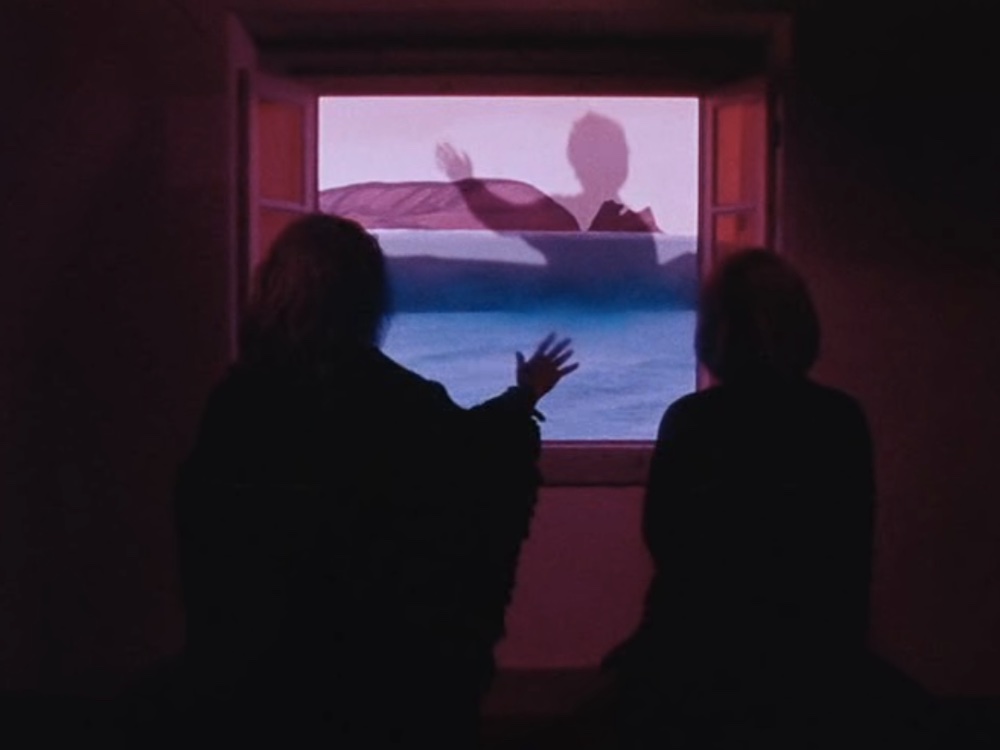
Thursday 4 September, 6.30pm
City of Pirates
Blending folk legends, surrealist poetry, children’s adventure stories, and Hollywood horror movies, City of Pirates follows a nonlinear narrative about a sleepwalking virgin, a ten-year-old boy who claims to have raped and murdered his entire family, and the lone inhabitant of an island castle who shares his body with an imaginary sister.
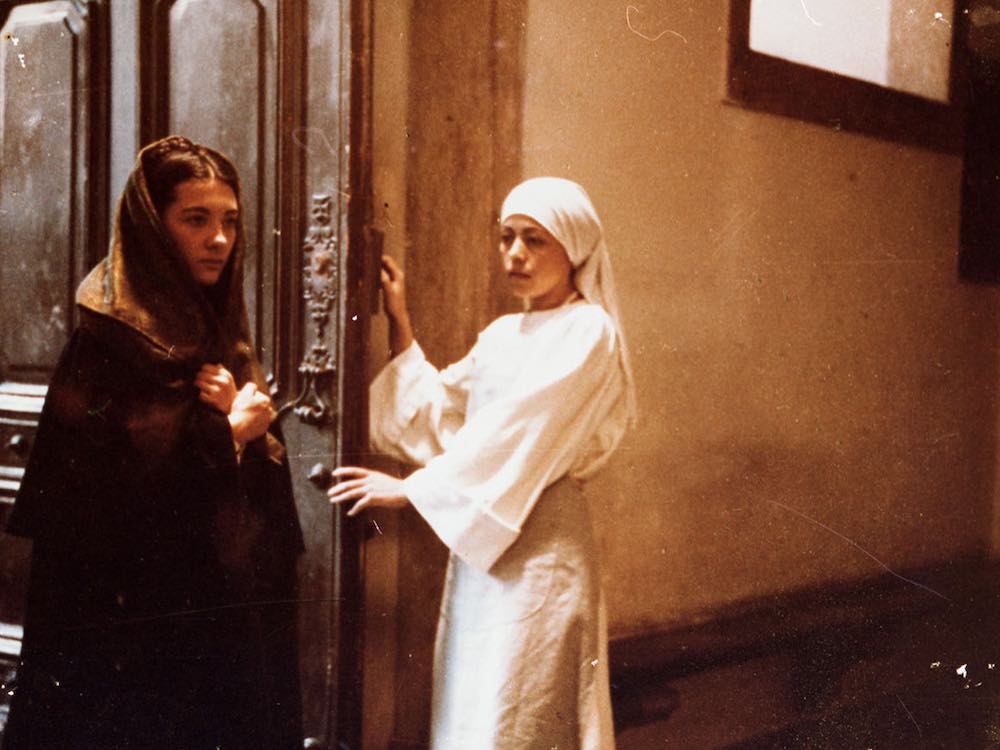
Saturday 6 September, 2pm
Doomed Love on 35mm
A story about doomed love between two people from different worlds and the impact in their lives. Based on the nineteenth-century novel of the same name by Portuguese writer Camilo Castelo Branco, Manoel de Oliveira transforms the tale into a meditation on storytelling itself, where literary narration and filmic space constantly reshape one another.
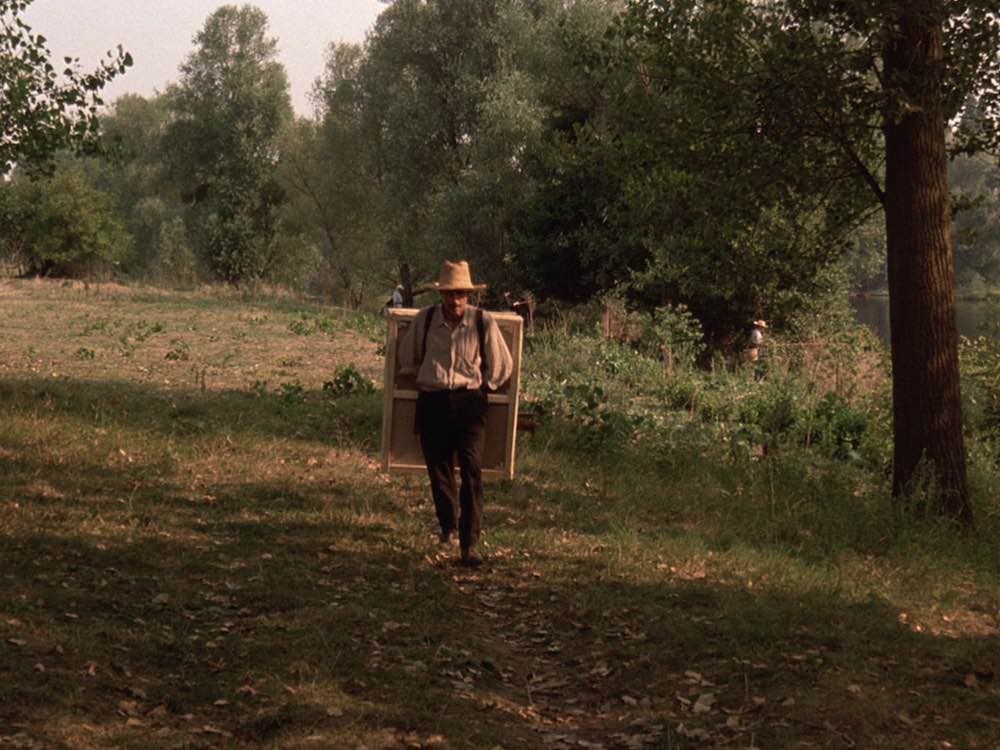
Sunday 7 September, 5pm
Van Gogh
A look at the last sixty days of Van Gogh’s life. After leaving the asylum, he settles in the home of Doctor Gachet, an art lover and patron. Van Gogh keeps painting amidst the conflicts with his brother Theo, the torments of his failing mental health, and an affair with Marguerite, his host’s daughter.

Friday 29 August, 6.30pm
Opening Night
Night and Fog + Moonfleet
Fritz Lang’s Moonfleet and Alain Resnais’s Night and Fog are two films that influenced Serge Daney’s understanding of cinema and the world early on, shaping the moral and aesthetic poles of his cinematic universe. Their influence would be felt throughout his career as a critic.

Saturday 30 August, 2pm
Nord-Sud Conversation: Daney/Sanbar + Roundtable Discussion
Serge Daney in dialogue with Palestinian historian Elias Sanbar, who is engaged in archiving the photographic memory of his people. A meeting between two cultures and two different approaches to the image, a parable of North–South relations. Followed by a roundtable discussion featuring the programme curators, Arta Barzanji and Gerard-Jan Claes, joined by Daney specialist Pierre Eugène, to discuss the enduring significance of his criticism.

Saturday 30 August, 4.30pm
Miss Oyu
Kenji Mizoguchi’s adaptation of Junichiro Tanizaki, one of Japan’s greatest twentieth-century novelists, depicts a tragic love triangle in which ritual and repression entangle two sisters and one man in elegant torment. The film illuminates postwar familial hypocrisy with poignant, formal precision.

Sunday 31 August, 2pm
Too Early/Too Late
Described in various contexts as both an essay film and a landscape film, Too Early/Too Late is a diptych that juxtaposes a soundtrack reciting Friedrich Engels with images of landscapes from France and Egypt, investigating themes of history, land, and class struggle.

Sunday 31 August, 4.30pm
She Wore a Yellow Ribbon
One of John Ford’s most lyrical, elegiac, and narratively sparse films, She Wore a Yellow Ribbon follows a cavalry captain (John Wayne) as he grapples with the ghosts of the past during his final mission before retirement.

Tuesday 2 September, 6.30pm
Orphans of the Storm
D.W. Griffith’s French Revolution melodrama hurtles two orphaned sisters through crowds, reversals and brink-of-death reprieves. For Serge Daney, it’s the least frivolous Hollywood vision of 1789 and a test of cinema’s power to show rather than tell—made newly legible by the film’s late-night life on French television in the late 80s.

Wednesday 3 September, 9pm
Ceddo
Set in pre-colonial Senegal, the film chronicles the titular Ceddo people's struggle to uphold their culture and traditions in the face of colonial and religious incursions from outside, as well as political intrigues from within.

Thursday 4 September, 6.30pm
City of Pirates
Blending folk legends, surrealist poetry, children’s adventure stories, and Hollywood horror movies, City of Pirates follows a nonlinear narrative about a sleepwalking virgin, a ten-year-old boy who claims to have raped and murdered his entire family, and the lone inhabitant of an island castle who shares his body with an imaginary sister.

Saturday 6 September, 2pm
Doomed Love on 35mm
A story about doomed love between two people from different worlds and the impact in their lives. Based on the nineteenth-century novel of the same name by Portuguese writer Camilo Castelo Branco, Manoel de Oliveira transforms the tale into a meditation on storytelling itself, where literary narration and filmic space constantly reshape one another.

Sunday 7 September, 5pm
Van Gogh
A look at the last sixty days of Van Gogh’s life. After leaving the asylum, he settles in the home of Doctor Gachet, an art lover and patron. Van Gogh keeps painting amidst the conflicts with his brother Theo, the torments of his failing mental health, and an affair with Marguerite, his host’s daughter.
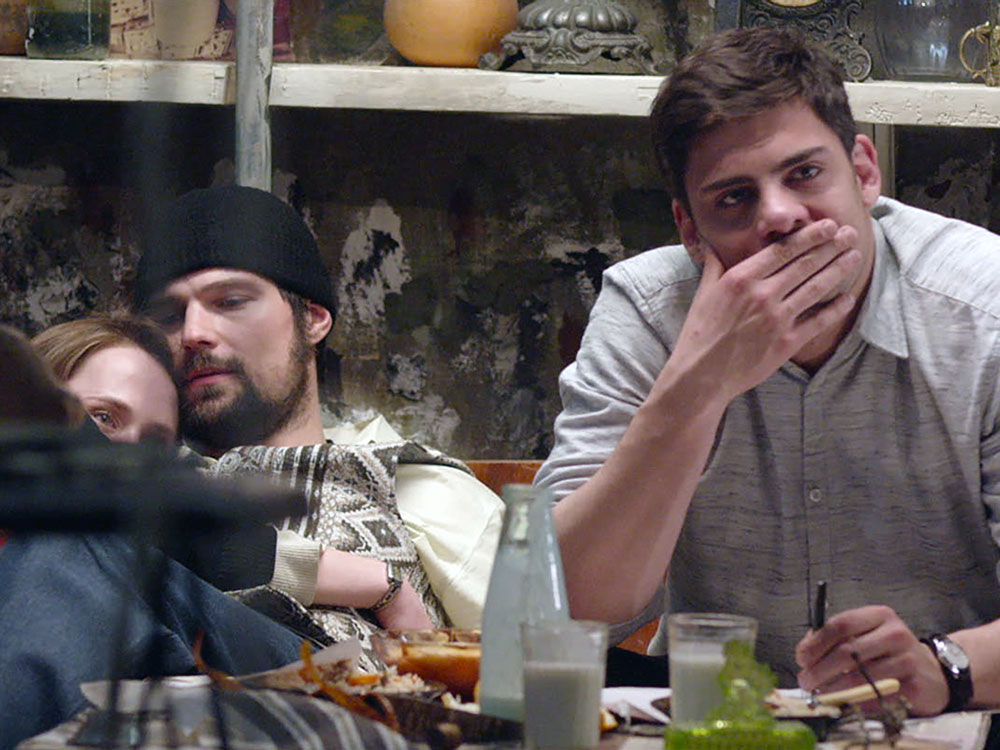









no. 236848.